Poor Things is a film unlike any other
Some films are so good they overpower any adjective put before them. Yorgos Lanthimos’ best film to date is partly imagined, partly historical, completely mesmerising.
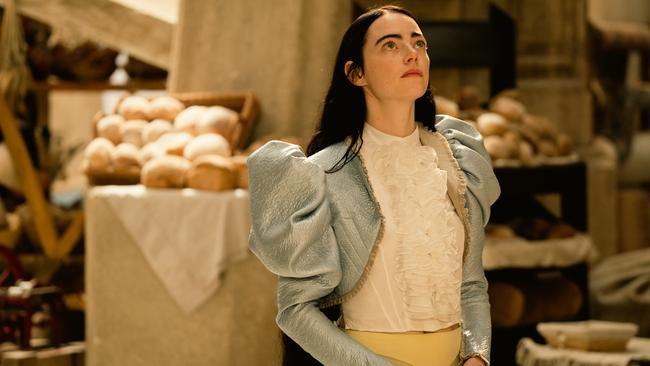
Poor Things
MA15+
In Cinemas, 26 December
★★★★½
Some films are so good they overpower any adjective put before them. Is Poor Things, directed by Greek filmmaker Yorgos Lanthimos and written by Australian playwright and screenwriter Tony McNamara, extraordinary, outstanding, profound, hilarious, Oscar-worthy and so on? It is but it’s more than that. It’s mind-blowing, mind-expanding, mind-bending. You will be talking about it for days afterwards.
It is Emma Stone’s performance of a lifetime. She should win best actress at the 2024 Academy Awards and one of her co-stars, Mark Ruffalo, should be a contender for best supporting actor. And that’s just the start.
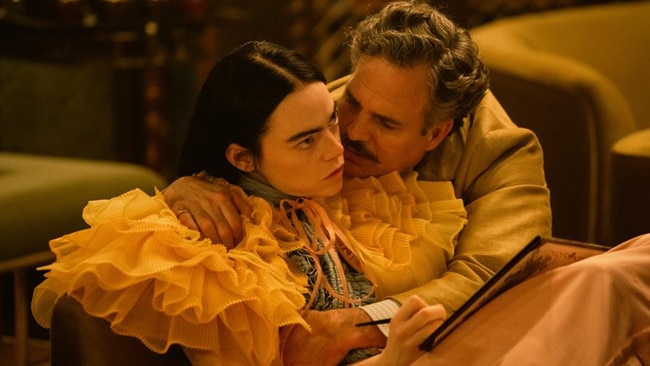
Lanthimos’s previous film, The Favourite (2018), also written by McNamara, received 10 Oscar nominations. This one should match that. If right now I could bet on it winning costume design (Holly Waddington) I would.
What’s it about? Good question. The opening setting is Victorian London as it might have been painted by Salvador Dali or filmed by Terry Gilliam in Brazil (1985) mode. Irish cinematographer Robbie Ryan, who was Oscar nominated for The Favourite, brings this surreal world, which starts off by showing us mortuary corpses, to exuberant life. His occasional use of a fish-eye lens makes us not just viewers, but participants.
It is partly imagined, partly historical, completely mesmerising. It marries Mary Shelley’s Frankenstein, with Werner Herzog’s enigmatic Kaspar Hauser and Margaret Atwood’s The Handmaid’s Tale, all with dashes of steampunk and Antoni Gaudi architecture thrown in.
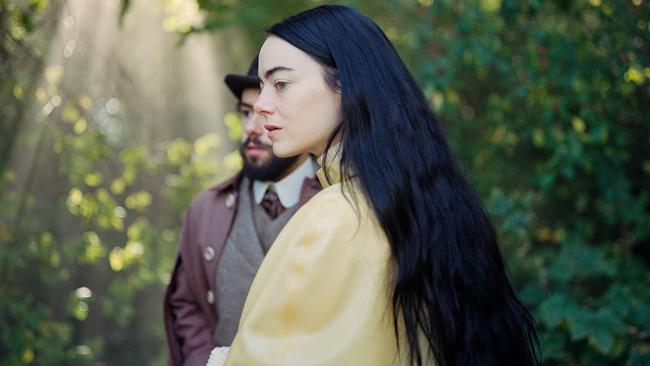
When a movie opens with a disfigured scientist regurgitating large bubbles into the air while surrounded by hybrid animals – a french bulldog’s head grafted onto a chicken’s body, for example – and this is a normal day at the lab, you know you are in for one unusual ride.
If there is an overriding theme it is the oppression of women, with the past speaking to the present. Don’t worry, though, that you are about to receive a #MeToo lecture. Lanthimos is not that sort of filmmaker. He highlights gender inequality by showing a young woman having lots of debauched sex. “Why do people not just do this all the time?’’ she asks after discovering “furious jumping”, as she calls it.
That young woman is Bella Baxter (an astonishing Stone), who I suspect will become a feminist hero of the early 21st century. She is the ward of a scientist, Dr Godwin Baxter (Willem Dafoe), who has a deeply scarred face as a result of one of the numerous childhood tortures inflicted on him by his fellow doctor father, who was a “man of science, not emotion”.
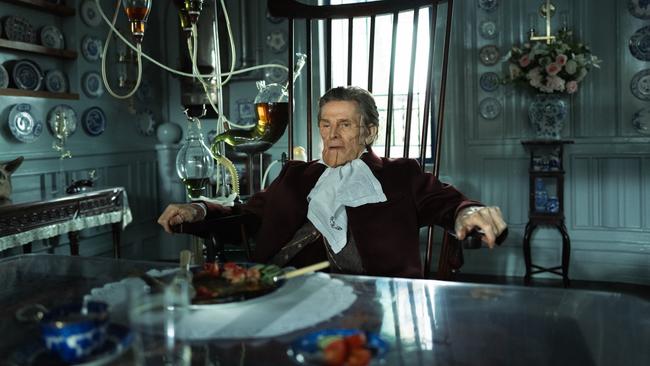
“God”, as Bella calls her protector, is a Dr Frankenstein created by a Dr Frankenstein. His monster is Bella. She looks about 20 but behaves like a baby, spitting out her food, urinating on the floor, repeatedly plunging a knife into a cadaver’s eyes.
The reason for this behaviour is the centre of the film.
I’m not going to reveal it and if you would rather not know in advance I recommend caution in any reading about the film. My viewing partner did not know and when the reason was revealed, about 30 minutes into the 140-minute run-time, the shock on her face was the only spoiler alert I needed.
So, let’s just say that Bella is a young woman with a childlike mind that rapidly matures, especially after she meets, and runs off with, a mustachioed lothario lawyer named Duncan Wedderburn (Ruffalo, revealing himself as a vaudevillian virtuoso).
When Wedderburn hears that a Dickensian housemaid at Dr Godwin’s lab-manor warned he was “a wolf with the scent of 1000 women” on him, he says, “She undersells it.” When Bella tells him, “Bella not safe with you, I think”, he replies, “You are absolutely’’ – pause – “not’’.
He speaks the truth, for a while. Like Frankenstein’s monster, Bella must free herself from her master, his replacements and from other societal constraints. And like him, she will be misunderstood and feared.
One of the hard truths of this story is how Bella comes to know her power, to understand she has agency, how it makes men cower and how they want to take it from her. There’s a telling moment in a Parisian brothel where the madame explains that some of her customers far prefer having sex with the prostitutes who would reject them as a bedfellow in the non-paid world.
Poor Things is based on the 1992 novel of the same name by Scottish writer Alasdair Gray, a book some thought was unfilmable. Lanthimos and McNamara have disproved that. The script is close to perfect. The dialogue is laugh-out-loud funny – often due to disbelief at what is being said, especially by Bella. The director is utterly, sweepingly in command from the first frame to the last.
There is a scene where Bella tells Wedderburn that, based on what he has said to her, he has decided to marry her or kill her. He does not reply and the camera remains on them, looking at each other in silence, for minutes. It is an amazing piece of filmmaking in a movie that is full of them.
Lanthimos’s best film until now, in my opinion, is not The Favourite but the psychological thriller The Killing of a Sacred Deer (2017), starring Colin Farrell, Nicole Kidman and Barry Keoghan. His new film is closer to the Sacred Deer than The Favourite and it is his supreme work to date. Whether you end up agreeing with that opinion, I’m confident you will see a film unlike any other.



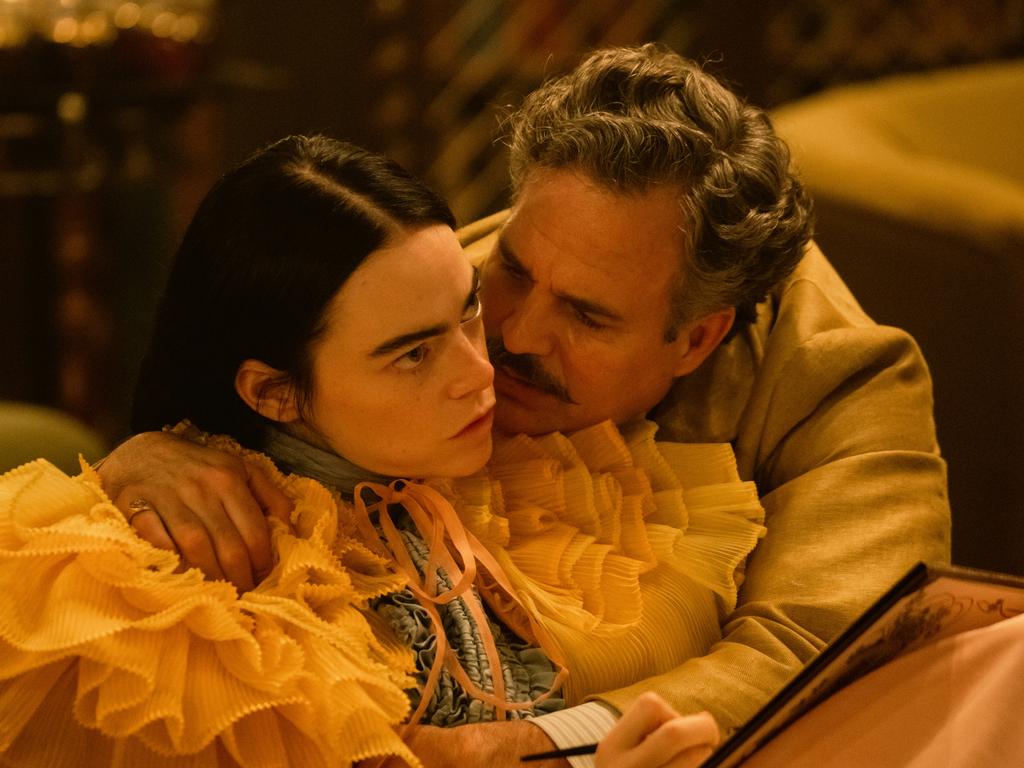

To join the conversation, please log in. Don't have an account? Register
Join the conversation, you are commenting as Logout